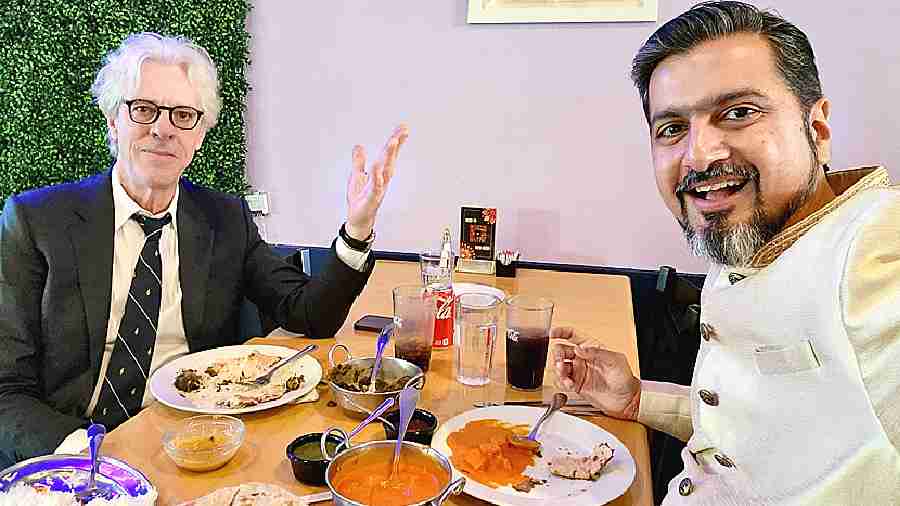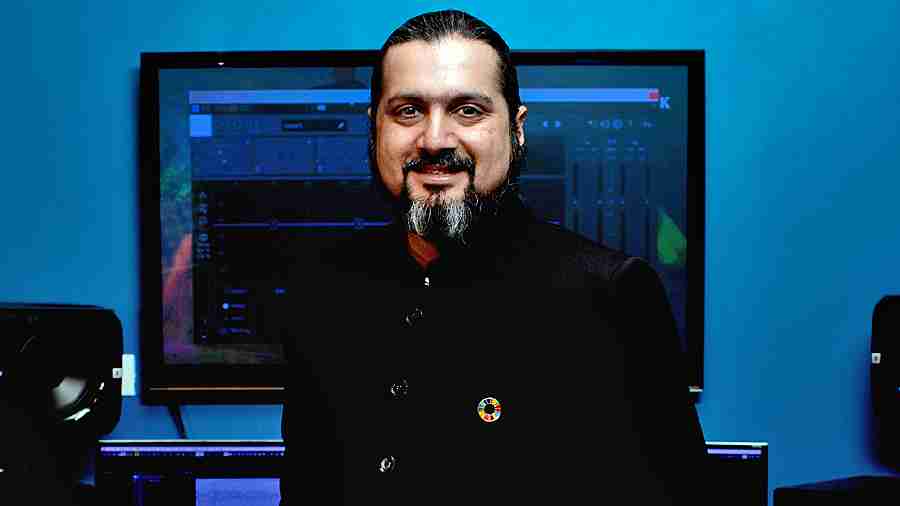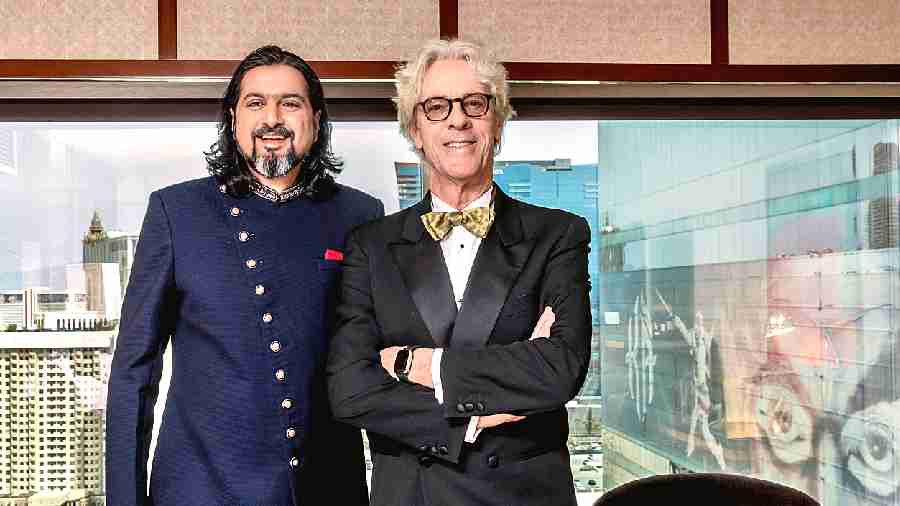Ricky Kej is collecting one Grammy after another. The 41-year-old musician from Bangalore won his third gilded gramophone trophy with Stewart Copeland for Best Immersive Audio Album on Sunday evening.
“It feels absolutely surreal to win the biggest prize in music again for the third time. I am extremely grateful to have had another opportunity to make my country India proud by achieving this on the biggest platform in the world for music. I’d like to thank the Recording Academy for this honour, my collaborators Stewart Copeland, Herbert Waltl, Eric Schilling, and everyone else who made this album possible,” Kej said shortly after his win for the album Divine Tides.
His collaboration with Copeland took time. “I had an opportunity to collaborate with Stewart Copeland in 2016 on just one song. And that collaboration happened through artiste managers, so I never actually got to interact with him. Then when the pandemic hit, I started working on this album. I started working on some music and I felt very strongly that I needed a very, very good collaborator for this album, somebody who could steer the direction of the album; somebody who could go right with me and somebody who was a virtuoso musician. The only person who came to mind was Stewart Copeland and it was a huge honour to actually get him. I mustered up the courage and I asked him whether he would like to join me on this journey and luckily, he agreed,” Kej had told TT earlier.
In the midst of celebrations and an Indian meal with Stewart Copeland at a restaurant in Los Angeles, he took a few questions from TT over email. Here’s what he has to say.
What does the third Grammy win mean for you personally and as a musician who is inspiring a new generation of artistes in India?
It feels absolutely surreal to win the biggest prize in music again for the third time. I am extremely grateful to have had another opportunity to make my country India proud by achieving this on the biggest platform in the world for music. I’d like to thank the Recording Academy for this honour and everyone who made our album Divine Tides possible. The nomination for this came as a complete surprise and it was an honour to compete and win in a category that had global superstars such as Christina Aguilera, The Chainsmokers and others.
In terms of sound engineering, what are the few things you had in mind while working on Divine Tides?
Divine Tides is a multilayered album with expansive soundscapes from across the world. We envisioned this album as a truly immersive experience from the ground up and used Sony’s cutting-edge 360RA technology to facilitate this. Working with industry legends and immersive mix pioneers Herbert Waltl and Eric Schilling helped elevate the album to new heights and we are thrilled to get this worldwide recognition for our efforts.
Stewart Copeland is, of course, a legend. What did he bring to the album in terms of sound engineering and what did you learn from him (and vice-versa) while recording the album?
Working with Steward Copeland was like attending the best masterclass imaginable. Stewart is not just the founder and drummer of one of the biggest-selling bands in history, The Police, he also regularly composes for operas, orchestras and for over 50 Hollywood movies, including the Oscar-winning Wall Street (1987). Despite reaching the pinnacle of success, he is constantly evolving and learning by exploring new sounds, traditional music instruments and rhythms. We constantly threw ideas at each other, adapted sounds and crafted this album together piece by piece.

Ricky Kej with Stewart Copeland celebrating their third Grammy win

Ricky Kej during a recording session
How do you go about researching and discovering music?
I love discovering new sounds from around the world and incorporating those soundscapes in my music. I have collaborated with native American flute players, Gaelic choirs, Hebrew choirs, South African choirs, Korean, Turkish, Senegalese singers, Azerbaijani musicians, Koto player from Japan, Maori musicians and so much more. It is always a fulfilling experience to bring all these different cultures, traditions and people together through the universal language of music.
What do you turn to for your creative flow and what brings out the best in you?
I always make music from the heart. This is one of the biggest reasons why my creativity flows because all of my music is about issues that I strongly care about, whether it’s the environment, social change, peaceful coexistence and so on. I am strongly inspired to use my music for positive social change and nature is my muse. There is never a dearth of inspiration.
What do you want to be your biggest gift to the Indian music industry?
Although my music and collaborations are cross-cultural, it always has strong Indian roots and I have always been a proud ambassador of India and Indian music. I am thrilled to play a role in showcasing the nuances of our rich musical heritage to the world and I hope to inspire musicians from around India, especially independent artistes, to follow their heart and create music that they truly love. I want them to know that they can be successful by working extremely hard and that they do not have to rely on the Indian film industry to be successful.
Out of nowhere, AI chatbots have arrived on the scene, trying to disrupt every walk of life. Young musicians are scared. Do you think artificial intelligence will ever win over talent and creativity?
The word ‘artificial intelligence’ itself negates that because its intelligence will always be artificial. Talent and creativity are one of the strongest traits of the human race and it’s solely because of those traits that we have come so far in just a few thousand years. Young musicians have to believe in themselves and understand the power of music, which is a surreal human experience. Artificial intelligence cannot replicate that.
